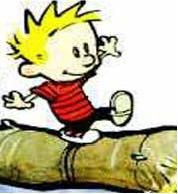Maximum City!
The time I first visited Mumbai, the city fascinated me. Everything seemed so beyond my comprehension. I tried expressing whatever I'd felt in an amateurish manner, whatever I felt, unknowingly then about the world's most complex city. The article was fun, almost a humorous attempt to tell a touch-and-go story of a dream-city. But a senior (I forgot his name!) took strong exception to it, and termed my mesmerization with the city as "musings of a lecherous voyeur" and pelted a serious advice, “Bombay is lot more than just that”. Although, it kinda hurt, I knew that the guy was passionate about Bombay, and frivolous attempts to talk about the city would only draw flak. So I let the thought sink in and then said calmly to myself that "I must know this city!, in whatsoever manner".
And the journey has indeed been long. And I still cannot figure out how far I've reached in my self-committed attempt to decipher the city of dreams. But it sure has been an exciting, perplexing, sensational and at times even invigorating journey.
I've read many Bombay books (that have a varying degree of this mammoth city assimilated into them). But this book, stands out of the league. It's an insider's view and is undoubtedly the best nonfictional account of the megacity. It's refreshingly new and tells very recent (and true) stories. It has all the elements that define the city's diversified identity, and Suketu reveals them in such passionate way that "his" Bombay rises from the safe restraints of his own individual mind to capture the imagination of the reader. Every story is shockingly honest. You can feel what the author felt. You live with him in Mumbai and Mumbai starts revealing itself to you; layer by layer.
There's no "planned" way to understand the whimsical and unplanned Mumbai. But an interesting way to get into the skin of it is to read some curiously told stories. What makes us curious about Mumbai? Movie stars, gangsters, painted women, cops and a huge sea of people who are all free to tell their own fascinating versions of the story. Why is there an inherent fascination for the morally compromised? Suketu chose these people as the heroes of his story. They according to him are "characters of freedom"! They live on the edge, on the extremity, of moral confusions. And in this extreme city, they are the liberated ones.
Entire book is well knitted with the help of stories (that are all true!), all combining to create a wholesome silhouette of the maximum city. Suketu uses such a convincing tone that one can almost experience the things first hand, can talk to the gangsters, know Balasahebthakeray (the mystery man), experience the life behind beerbars, walk through the lanes of Mira road and can even sniff the humid addiction of this extreme city. The book deals with blatant truths, and that too without and apologetic worldview! Underworld, communal riots, mean politics and even Rent Act which is sole reason for the existence of pathetic and shabby structures right in the heart of Mumbai.
Suketu has an acute sense of being an Indian, perhaps we all have but do not realize it unless we are in a strange world; he finds us "individually multiple, severally alone". To understand the significance of this, better read the book. You’ll like it.
If you don't like it, come beat me up! ;)
